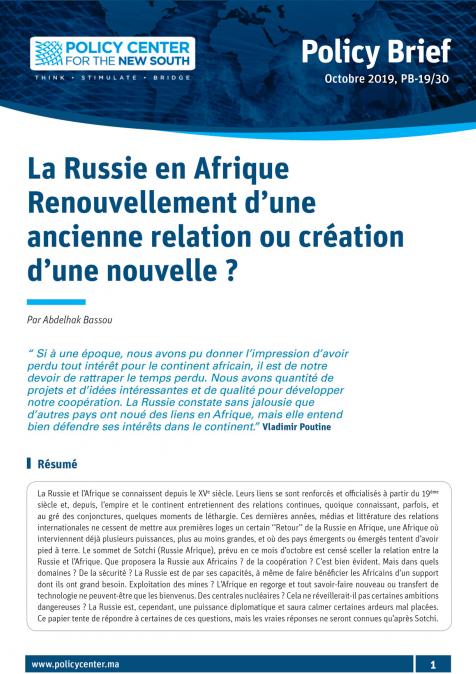Publications /
Policy Paper
L’Union européenne (UE) et l’Union africaine (UA) vont se retrouver au mois d’octobre 2020 dans un Sixième Sommet du cycle de la Stratégie Conjointe UEAfrique qui les réunit périodiquement depuis l’année 2000. Ce Sommet se profile dans un contexte de turbulences provoqué par le choc pandémique de la Covid-19. Dans cette perspective, l’UE a présenté à l’UA une nouvelle offre de coopération inspirée du « Green Deal », la stratégie géopolitique et économique arrêtée par la nouvelle Commission européenne depuis sa nomination.
Le Sommet d’octobre offrira l’opportunité de formuler une approche de Partenariat davantage consensuelle pour trois raisons fondamentales. La première est que le choc récent du Coronavirus a fait apparaître la nécessité de reconstruire le narratif du Partenariat, redéfinir sa finalité et de réajuster ses objectifs finaux, en tenant compte de deux principes majeurs, que sont la sécurité humaine et la solidarité basée sur l’interdépendance. La deuxième est de définir une vision des intérêts réciproques et les priorités communes de l’Union européenne et de l’Afrique dans des domaines stratégiques : la santé, la souveraineté alimentaire, les chaînes de valeur, le capital humain, le digital et l’innovation, l’immigration, la paix et la sécurité, la gouvernance… Des domaines stratégiques dans lesquels les partenaires pourraient bâtir un partenariat global, cohérent et mutuellement bénéfique. La troisième est liée à l’adoption de leviers d’intervention et d’une démarche pragmatique fondée sur une amélioration des outils et des structures du partenariat dans un esprit de codécision clarifiant la responsabilité partagée des institutions européennes et africaines dans la mise en œuvre de la stratégie partenariale.
Cette clarification pourrait contribuer à rendre plus efficace la programmation et la cogestion des instruments du partenariat, tenant compte de la coordination politique globale de l’action des deux institutions. C’est la crédibilité du partenariat aux yeux des citoyens des deux Continents qui est en jeu.






